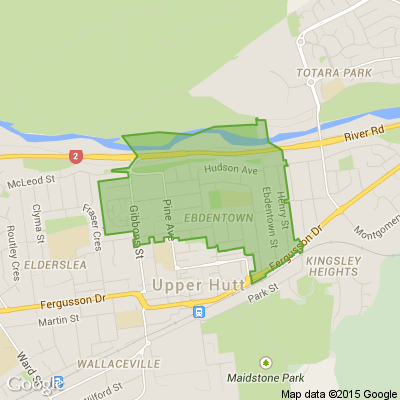My email to GWRC re: Water use consents and river protection.
To the Greater Wellington Regional Council,
In the Upper Hutt Leader October 19 this letter to the editor raised interesting concerns.
fairfaxmedia.newspaperdirect.com...
I googled Unilever to find that they have sold to a property investor and shut down in 2015.
However it is concerning to me that GWRC had granted consent for Unilever to draw 900,000 cubic metres of water from the Waiwhetu artesian aquifer. This is the same amount as Hastings allocated for the Chinese bottling plant. Although this appears small (less than 2% of available water), I do believe that with the current low river flows it is critical to ensure that any future applications are addressed carefully.
www.stuff.co.nz...
Last summer Wellingtons water became critically low and the public responded well to the councils call to conserve water. We the ratepayers reduced our usage from over 160 million litres to 120 - 130 million litres per day. This shows that the public do care.
I want to suggest that Upper Hutts year round water restrictions are extended to Lower Hutt, Porirua and Wellington. This would help to create mindful use of water all of the time, not just during drought.
As a child in the 1970's I would drink from Te Awakairangi Hutt river near the Silverstream bridge. Now only 40 years on I am committed to finding ways to restore the health of the river, year round water restrictions would be a step in the right direction.
As aquifers around the world decline in quality, the big multinational companies will be looking for new sources of clean water.
"One Pure is still in the process of setting up its bottling plant, where it has permission to extract 405,000 cubic metres of water a year while NZ Miracle Water has consent to take 900,000cm3 from the middle of this year. However its first shipment of its HBay-branded water to China was returned for failing to meet purity standards".
www.hawkesbay.co.nz...
I would like to see a moratorium placed on the granting of any bottling plants in the Greater Wellington region.
I am currently looking for ways to protect Wellingtons water network.
In 2014 Te Urewera north of Hastings was granted "legal personhood", the river and the land now have the same rights as a person and is protected by government and local Iwi representatives. "I am the river and the river is me" is the Maori foundation that protects Te Urewera.
www.facebook.com...
The Whanganui River is also in the process of being granted personhood. I am currently looking at how we could gain the same status for Te Awakairangi and all of her connected feeder rivers and streams. Te Urewera and Whanganui gained their status as part of Treaty settlements - so that they can't be owned by anyone, they belong to themselves just as we do. I am making contact with Iwi to find out if we can grant the same status outside of a Treaty settlement, like a public moratorium backed by government and Iwi.
An explanation of the Whanganui river personhood:
www.nzherald.co.nz...
For the past two years I have been involved with the Wellington TPP Action group. Our purpose is to stop TPPA because of the harm it can do to our environment.
I have taken a close look at how TPPA affects our rights to regulate public assets.
The trade and retail of water comes under TPPA rules, in Annex 2 it states "New Zealand reserves the right to adopt or maintain any measure with respect to water, including the allocation, collection, treatment and distribution of drinking water. This reservation does not apply to the wholesale trade and retail of bottled mineral, aerated and natural water".
Under TPPA if the council makes water restrictions during a drought, the communities conserve water while foreign bottling companies continue to bottle water to sell - or if council enforces restrictions then the bottling plant can sue the council for their loss of profits.
Even if TPPA doesn't become law, there are other trade agreements in the pipelines which can do harm. It would be diligent to put protective policy in place for future proofing public assets.
My focus is on protection of water - before any applications are made, policy should be in place.
I have presented my concerns at UHCC and as a result they have adopted 12 resolutions - asking government to address the issues before signing the TPPA. See the 12 resolutions here:
www.actionstation.org.nz...
In 2013 amalgamation threatened local council authority, now we have the local government amendment bill 2 which aims to remove public assets from council control. Nick Smith has suggested removing council rights to vote on issues such as GMO potatoes and 1080 poison regulation (such as keeping drop zones well out of the water catchment areas).
In 2012, 95% of the Westport community signed a petition asking Government/DOC to keep 1080 out of their water catchment areas. This was backed by a council resolution. The 1080 drop went ahead ignoring the council and public petition and dropped 1080 in the water catchment areas. Disgraceful!
The governments "wading or boating" standard for rivers and lakes is not good enough, it allows any corporations operating here to make a huge mess without breaking any rules.
My requests to Greater Wellington Regional Council:
1. Extend Upper Hutts year round water restrictions to include Porirua, Wellington, Lower Hutt. Require that all new builds include rainwater harvesting tanks.
2. Place a moratorium (or a solid ban) on the granting of water consents for water bottling plants (quickly before any companies apply).
3. Provide assistance and support for any public calls for greater protection of the river. I will continue to explore the concept of "Personhood" for our water network.
4. Adopt the 12 TPPA resolutions and encourage other local bodies to do the same, this is all about gaining momentum against bad policy. We cannot protect our water quality and regulation under a bad trade agreement.
5. Publicly oppose amalgamation and the Local government amendment bill 2 and show support for the local councils. The public want to keep public assets in local council control - if this is removed then so too is public accountability.
6. Support the local councils right to regulate toxic poisons, such as 1080. The public have a right to say what goes in their water supply, I ask that democracy is supported by GWRC.
Thank you for your time in considering my concerns.
Tracey Ultra

Ata mārie, Neighbours 🌅 Ready for today’s riddle?
I can fly but have no wings. I cry but have no eyes. What am I?
Do you think you know the answer to our daily riddle? Don't spoil it for your neighbours! Simply 'Like' this post and we'll post the answer in the comments below at 2pm.
Want to stop seeing riddles in your newsfeed?
Head here and hover on the Following button on the top right of the page (and it will show Unfollow) and then click it. If it is giving you the option to Follow, then you've successfully unfollowed the Riddles page.

Poll: Should employees be able to work from home?
At the post-Cabinet press conference, the National Party asserted they want public sector staff to return to the office. This has opened a conversation about other sectors in New Zealand who have adopted working from home (WFH).
Where possible, do you think employees should be able to work from home? Vote below and share your thoughts in the comments.

-
70.1% Yes
-
26.8% No
-
3.2% Other - I'll share below
Poll: How do you feel about dogs being allowed indoors in cafes?
For most of us, seeing a friendly doggo while out and about instantly brings a smile to our faces. But how do you feel about cafes welcoming pups inside?
Cast a vote and share your thoughts below.

-
26.3% I love it!
-
31% Only in designated areas
-
42.7% No, it should be outdoors only.







 Loading…
Loading…